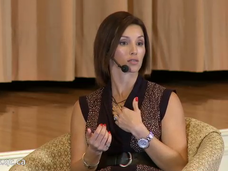
Anxiety is a biological mechanism designed to protect us from dangerous situations. A little anxiety is natural; in normal doses it protects us. When it is excessive, it imprisons us.
The two criteria that are used to distinguish between normal and problem anxiety are personal suffering and loss of function. If your anxiety is so strong that you are constantly preoccupied by it, or if it affects your ability to function normally – at work, or socially or in other areas – then your anxiety would be considered a disorder.
Most anxiety disorders can be defined as the fear of losing control. There are successful and effective interventions for many anxiety disorders.
What is it?
Anxiety disorders are a group of psychological problems whose symptoms include excessive anxiety, fear, worry, avoidance, and compulsive rituals. They are more commonly diagnosed in women than in men and include:
- Panic Disorder
- Obsessive-Compulsive Disorder
- Social Phobia
- Generalized Anxiety Disorder
- Specific phobia (single phobia or simple phobia)
- Posttraumatic Stress Disorder - fear following a traumatic event.
Who is affected?
- Approximately 12 percent of Canadians are affected by anxiety disorders.
- Women are twice as likely to be affected than men.
- The highest rates of hospitalization for anxiety disorders are among adults aged 65 years and over.
- Anxiety disorders are the most common disorders in children and youth.
Symptoms of anxiety disorders
General physical manifestations of anxiety disorders include
- Heart palpitations
- Elevated blood pressure
- Trembling
- Chest pain
- Choking sensation
- Sweating
- Nausea
- Dizziness
- Numbness or tingling
- Hot or cold flashes
Causes of anxiety disorders
There is no single factor that causes anxiety disorders but a number of risk factors that may to contribute to their development.
- Instinct: Certain fears are innate and made sense at some time in our development. Today, we can see these instinctive survival roots in many forms of anxiety disorders such as agoraphobia, social phobia and obsessive-compulsive disorder. You will also notice that many people are afraid of snakes despite never having been bit by one, while people are rarely phobic of stoves despite having been burnt many times.
- Temperament: We are all different. Some of us are simply more anxious than others. That’s just the way we are. The common personality trait in individuals who are prone to anxiety disorders is the way they think in absolute terms. They don’t easily let go. As we saw earlier, residual danger remains in most circumstances that create anxiety. This fact clashes with people who think in absolute terms and creates anxiety disorders. Also, Individuals with low self-esteem and poor coping skills are more likely to develop an anxiety disorder.
- Environment: Our attitudes are greatly influenced by our families, our schooling, our friends, and our society. We would be very different if we were raised in different countries and by different parents. Issues such as poverty, early separation from the family, family conflict, critical parents, and the lack of a strong support system can all lead to chronic anxiety.
- Brain chemistry: A chemical imbalance of brain signaling molecules or stress hormones (cortisol) may contribute to anxiety disorder development.
- Genetics: Genetic factors may play a role in anxiety disorder development. One risk factor may be a biological vulnerability to stress.
- Trauma: Anxiety disorders may develop following a traumatic event or early life abuse.
Mini-Psych School videos
| Born to be anxious? Not! |
Emotions as a survival tool (2011) |
Watch other Mini-Psych School lectures.
Need help ?
All requests must first go to the mental health team in your CSSS. You can also contact a crisis centre, the support groups Phobies-Zéro, Revivre, AMI-Québec or choose "Support" from the pull-down menu of the Community ressources.
[Anxiety Disorders: causes and symptoms] [Anxiety disorders: treatments]




